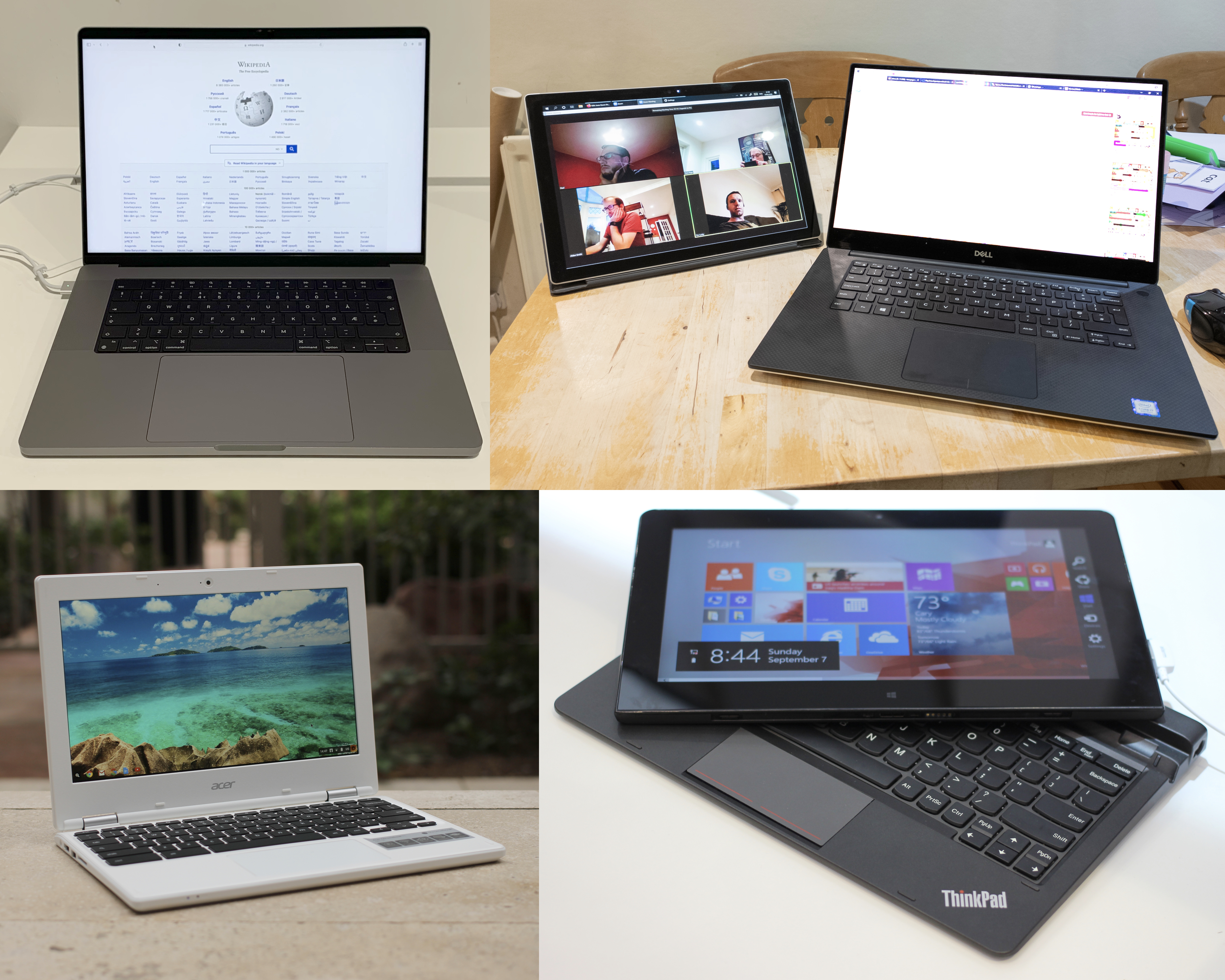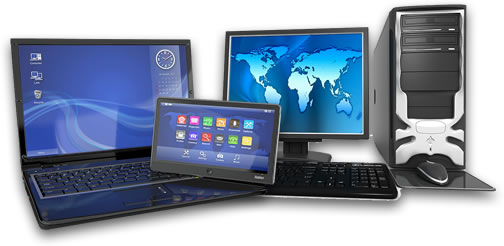Laptops and Computers: A Deep Dive into the World of Personal Technology

In today’s digital age, laptops and computers are indispensable tools that shape how we work, learn, and play. From professional environments to personal use, these devices have evolved significantly, offering unmatched convenience, performance, and versatility. In this article, we’ll explore the differences between laptops and desktops, their uses in various industries, and what the future holds for personal computing.
Understanding Laptops and Desktops
What is a Laptop?
A laptop is a portable computing device that combines a screen, keyboard, and trackpad (or mouse) in a compact, all-in-one form. Designed for portability, laptops run on battery power and can be charged via an AC adapter. Whether you’re working in an office, studying in a café, or traveling, a laptop allows you to carry your work with you wherever you go.
Key Features of Laptops:
- Portability: Light and compact, ideal for work on-the-go.
- Built-in Battery: Operates without an external power source for several hours.
- Integrated Components: Includes everything from the CPU to the display in one unit.
- Wireless Connectivity: Built-in Wi-Fi and Bluetooth allow for easy connection to the internet and other devices.
What is a Desktop Computer?
A desktop computer refers to a stationary computing system that typically includes a separate monitor, CPU tower, keyboard, and mouse. While desktops have the advantage of larger screens, better processing power, and easier upgrades, their lack of portability makes them less flexible than laptops.
Key Features of Desktops:
- Larger Display: Desktops offer bigger screens, which are better for multitasking and detailed work.
- Upgradeable: Easier to customize or upgrade individual components like RAM, storage, and graphics.
- Powerful Performance: Generally more powerful than laptops due to the ability to house larger components.
- Cost-Effective: Desktops can often offer better performance at a lower price compared to laptops.
Laptops vs. Desktops: Which One Should You Choose?
When choosing between a laptop and a desktop computer, it’s important to consider your specific needs, preferences, and budget. Both have their strengths, but depending on how you intend to use the device, one might be a better fit.
Advantages of Laptops
- Portability: If you need to work from various locations or travel frequently, a laptop is your best option. Its compact design and long battery life make it easy to carry and use anywhere.
- Space-saving: Laptops don’t require much desk space. They’re perfect for people who have limited room or prefer a minimalist setup.
- Versatile Uses: Whether you’re working, watching movies, or gaming, laptops can handle multiple tasks, making them an all-in-one solution for most users.
Advantages of Desktops
- Power and Performance: Desktops tend to have better performance than laptops, especially in terms of processing power, graphics, and memory. If you’re into video editing, gaming, or graphic design, desktops are ideal.
- Customization: Desktops can be upgraded easily, allowing you to improve specific components as needed.
- Better Ergonomics: With larger screens, external keyboards, and adjustable setups, desktops can offer a more comfortable and ergonomic work environment.
Use Cases
- Laptops are perfect for:
- Frequent travelers or people working in multiple locations.
- Students who need to study in various environments.
- Professionals who need a compact device for meetings, conferences, or remote work.
- Desktops are ideal for:
- Gaming enthusiasts seeking powerful hardware for smooth gaming experiences.
- Content creators who need high-performance devices for video and photo editing.
- Office workers who need more processing power for multitasking.
The Impact of Laptops and Computers in Various Industries
The rise of laptops and computers has significantly impacted multiple industries. From healthcare to entertainment, these devices are transforming how businesses operate, making tasks more efficient and accessible.
Education
Laptops have made learning more accessible by allowing students and teachers to access online resources, virtual classrooms, and educational tools. Online courses, virtual meetings, and the ability to collaborate in real-time have opened up new possibilities for remote learning.
- Portable and easy to take to classes.
- Cloud-based applications allow students to work from anywhere, at any time.
Healthcare
In healthcare, laptops are vital for managing patient data, scheduling, and telemedicine. Doctors, nurses, and healthcare providers use laptops to access patient records, consult with colleagues remotely, and monitor health data.
- Telemedicine: Doctors can consult patients remotely via video calls.
- Electronic health records (EHRs): Laptops allow healthcare professionals to quickly access patient data and medical history.
Business and Finance
For businesses, computers are essential tools for data analysis, financial planning, communication, and customer management. Laptops enable employees to work remotely, attend virtual meetings, and access company networks from virtually anywhere.
- Remote work: Laptops enable businesses to support remote or hybrid working models.
- Productivity: With tools like Microsoft Office, Google Workspace, and various accounting software, laptops help teams work more efficiently.
Entertainment and Media
In the entertainment industry, laptops and computers are used for everything from video editing and music production to gaming and digital content creation. High-performance desktops are especially favored by professionals working with graphics, sound, and animation.
- Gaming: Gaming desktops and high-end laptops offer superior graphics and performance.
- Content creation: Laptops and desktops are used for editing videos, photos, and sound.
Choosing the Right Laptop or Computer for Your Needs
When choosing a laptop or computer, it’s important to identify your primary needs. There are various factors to consider, such as performance, portability, and budget.
1. Performance
- Processor (CPU): For smooth performance, choose a device with a fast processor like Intel Core i7 or AMD Ryzen.
- RAM: Aim for at least 8GB of RAM for general use, while 16GB or more is recommended for heavy tasks like video editing or gaming.
- Storage: Opt for SSD storage for faster boot times and file access.
2. Display
- Size: If you’re on the go, consider a 13-inch to 15-inch laptop. For desktops, a 24-inch or larger monitor is ideal for multitasking.
- Resolution: A Full HD (1080p) display is standard, but if you’re into graphic design or video editing, consider a 4K display.
3. Budget
- Entry-level laptops and desktops typically range from $300 to $600, offering basic functionality for everyday tasks.
- Mid-range models are priced around $600 to $1,000, offering better performance and additional features.
- High-end laptops and desktops can exceed $1,000, offering advanced performance, premium materials, and specialized features.
The Future of Laptops and Computers
The future of laptops and computers is marked by continued innovation, with a focus on portability, power, and efficiency. Key trends that are shaping the future include:
- Artificial Intelligence (AI): AI is expected to enhance performance, automate tasks, and offer smarter user experiences.
- Foldable Screens: The development of foldable laptops and tablets will further blur the lines between laptops and smartphones.
- Cloud Computing: With more services moving to the cloud, laptops and desktops will continue to evolve, allowing for more powerful and efficient computing experiences.
- Sustainability: Manufacturers are increasingly focusing on creating energy-efficient, eco-friendly devices that reduce environmental impact.
Conclusion
In the world of personal computing, laptops and desktops are both integral tools for work, entertainment, and communication. Whether you’re looking for a portable device for everyday tasks or a high-performance desktop for heavy-duty work, there’s a device to suit your needs. As technology continues to evolve, these devices will only become more powerful, versatile, and indispensable in our daily lives.
For further information on selecting the best laptop or desktop for your needs, visit Vastresult or Futurum Group.
FAQs About Laptops and Computers
Q1: What’s the difference between a laptop and a desktop?
A laptop is a portable computer with an integrated battery, screen, and keyboard, while a desktop requires external components like a monitor and keyboard. Laptops are more portable, while desktops tend to have better performance and are easier to upgrade.
Q2: Which is better for gaming—laptop or desktop?
For gaming, desktops are generally better due to their ability to house more powerful components like high-end graphics cards. However, gaming laptops with strong specs are also available for those who prefer portability.
Q3: Can I use a laptop for professional video editing?
Yes, modern laptops with high-end processors,
plenty of RAM, and dedicated graphics cards are capable of handling video editing. For more demanding tasks, consider laptops with Intel Core i7 or i9 processors and at least 16GB of RAM.

Which device will you choose for your next computing experience? Whether you lean towards the convenience of laptops or the raw power of desktops, the right choice depends on your needs, preferences, and budget.

